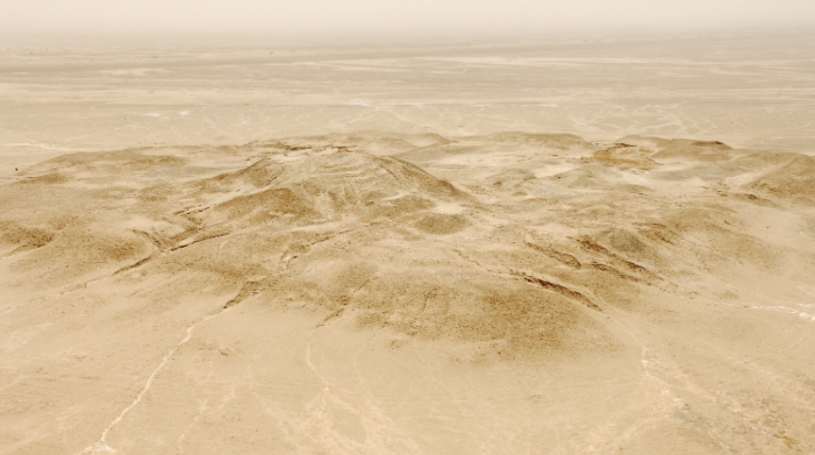British Tourist Accused of Smuggling Artifacts from Archaeological Site in Iraq Faces Death Penalty
A British tourist could face the death penalty in Iraq after being accused of smuggling artifacts out of the country.
Jim Fitton, a former geologist, collected stone fragments and shards of broken pottery as souvenirs during an archaeological tour of Eridu, an ancient Sumerian city in southern Iraq. He was arrested at the airport on March 20 after the baggage belonging to the tour group was searched. A German tourist who was also part of the tour was apprehended at the airport.
Under Iraqi law, the intentional international export of any items determined to be cultural heritage is “punishable with execution”.
Fitton’s family members, who live in Malaysia, told the BBC that the fragments were “in the open, unguarded and with no signage warning against removal”. The tour leaders also collected shards and encouraged the tourists to do the same, the family said.
The Fittons are now petitioning the British government to intervene in the trial, which is set to begin May 7. Fitton’s lawyer has drafted a proposal for the case to be dropped, the family told the BBC, however the plan needs the endorsement of the British Foreign Office to be presented to a high-ranking judiciary in Iraq.
British Foreign Office minister Amanda Milling said in a statement that the agency has responded to Fitton’s case.
“We understand the urgency of the case, and have already raised our concerns with the Iraqi authorities regarding the possible imposition of the death penalty in Mr Fitton’s case and the UK’s opposition to the death penalty in all circumstances as a matter of principle,” the statement said.
The city of Eridu was likely founded around 5400 BC in the once-lush southern marshlands of the Euphrates River, known locally as the Ahwar. (The aquatic region was largely drained between 1950 and the 1970s for agriculture and oil drilling.) It was considered the first city in the world by the Sumerians and within Sumerian mythology served as the earthly kingdom of the gods. It was occupied between the 5th and 2nd millennium and reached the zenith of its influence in the 4th millennium.
The general architecture of Eridu is one large mound comprised of 18 layers of settlements — mudbrick temples, homes, and other structures built over the ruins of older inhabitants for some 3,000 years. Today, most tourists visit Eridu’s well-preserved temples, or ziggurats, the most famous being the Ziggurat of Enki.
The Ahwar of Southern Iraq, which includes Eridu and the Sumerian cities Uruk and Ur, was added to the World Heritage List in 2016.
Nearly 100,000 people have signed a petition calling for Fitton’s release. In a statement, his family called the response to the campaign “unbelievable” and thanked the support “from old colleagues, good friends, kindred spirits, and complete strangers who have not allowed this to go unnoticed.”

